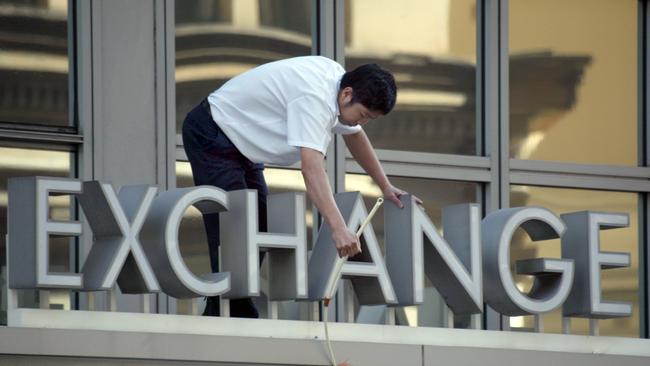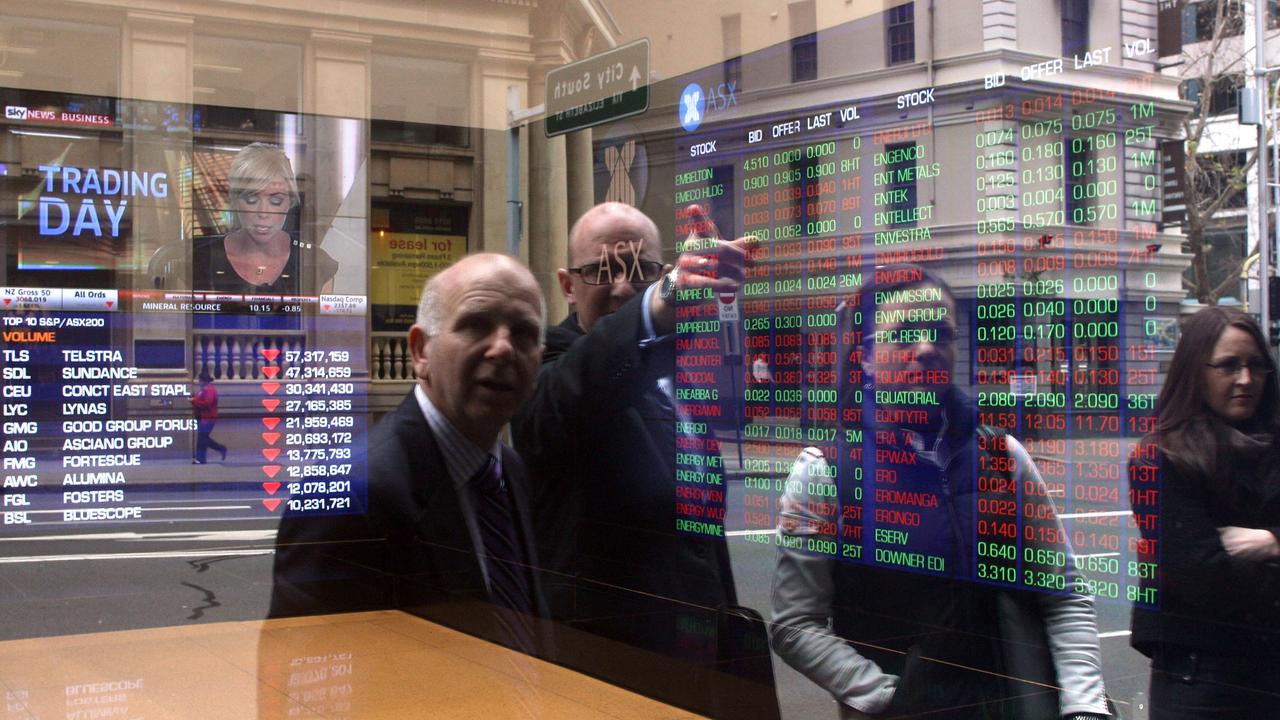Reporting season: red ink and excuses flow late-comers
This week’s soft parade of corporate reporting laggards has transformed into a stampede.

Under ASX rules, the 1212 companies with a June 30 balance date have until the opening of trade today to file, or else face suspension.
As of noon on Wednesday, 249 companies were unaccounted and by close of trade this number had shrunk to 160.
The ASX will process disclosures overnight, with a shame list of no-shows lodged by 10am on Thursday. Only five stocks were suspended for not doing so last year, compared with two in 2014 and five in 2013.
From recently listed tech listings to older serial offenders — many of them well-known names — the coy reporters proved that behind the inevitable impairments and one-off items, the only way to lose money is to spend more than they earn.
For the recent IPOs, the prevailing theme was reaching for the cheque book in the hope that revenue follows.
Chaired by former Westpac executive Peter Clare, digital banking platform ChimpChange posted a thumping $7.65 million loss, on revenue of $180,000.
Management describes the period as “transformational’’, noting that since the company’s June relaunch customer take-up has outperformed initial targets.
DirectMoney, the only ASX-listed marketplace lender, lost $7.9m ($3.8m excluding one-offs) on revenue of a mere $1.2m.
CEO Peter Beaumont describes the year as “one of establishment and significant achievement’’.
1st Available, a portal for booking medical appointments, posted a $5m loss (50 per cent higher) on revenue of $1.98m (up 560 per cent).
Corporate call-recording service Dubber dropped $5.8m compared with the previous $1.8m deficit, “the expected position as the business is in the early stages of commercialisation”.
Big data marketing group Invigor lacked the vim and verve implied by the name, extending a previous $100,000 loss to a $2.68m deficit.
In a similar vein, it was more a case of Skyfall for Skyfii, which offers free WiFi in shopping malls and then taps the customer data.
Despite recording full-year revenues of $2.3m, Skyfii extended a previous $4.8m loss to $5.4m (including $3m of one-off expenses).
Biofuels has been the graveyard sector for investors, with local producer Australian Renewable Fuels falling into insolvency in January.
Mission NewEnergy, the last remaining listed biodiesel play, turned a previous $4.1m profit into a $2.2m loss.
Following the divestment of a key facility in Malaysia, revenues dwindled from the previous year’s $7.2m to a paltry $42,000.
On an eclectic note, obscure investment house Authorised Investments accrued a $248,000 loss on revenue of a single dollar (from bank account interest).
Biologics house Memphasys, which specialises in sperm separation for IVF purposes, describes a “bitter sweet year” hampered by a legal stoush involving an investor in a spin-off company.
The dispute has “put a dampener on the overall result and has placed an extra requirement on Memphasys for ongoing litigation funding’’.
Immuron, which markets Travelan anti-diarrhoea tablets, shouldn’t expect investors to “run” for its shares after reporting a $4.39m loss on revenue of $1.15m.
Elsewhere in the health sector, prosthetics maker Allegra Orthopaedics is out on a limb, reporting a $2m loss on revenue of $5m.
Aeeris, which offers severe weather and hazard warnings, put investors on high alert by extending a $722,000 loss to $1.47m. Revenue climbed 62 per cent to $1.9m.
In the troubled vocational education sector, UWS posted a $9.3m loss, a turnaround on the previous $2.2m surplus.
In the resources sector, in which investors are inured to bad news, goldminer and nickel developer Independence Gold posted a $58m headline loss compared with a previous $76.8m profit. The main driver was $65m of costs related to acquiring the Nova nickel project, but the Tropicana goldmine was also off the pace in the second half.
LNG Limited, which is developing the big-ticket Magnolia project in the US, extended a previous $85m loss to $115m. LNG has expensed its chunky Magnolia costs as it goes along, rather than capitalising them.
Having survived its near-death experience after last year’s iron ore price collapse, Atlas Iron posted an official loss of $159m, an improvement on last year’s impairment-blighted $1.07 billion. But underlying earnings improved to $74m compared with a previous $51m, with $54m generated in the second half.
Stanmore Coal transformed from explorer to coalminer, having bought the Isaac Plains Coal Mine from Vale and Sumitomo for just $1. Stanmore extended a $12.1m operating loss to $19.74m, blaming start-up costs, unseasonal heavy rains and a $13m impairment on another asset.
Conditions are still problematic in the mining services sector, with earthmoving equipment provider Emeco Holdings posting a $225m loss after dropping $127m in the previous year.
Perth-based civil and mining contractor Brierty chalked up a $16.9m underlying loss and a $50m reported loss, compared with a previous $3m profit. Brierty’s earnings hole resulted from problems at its North West Coastal Highway project, including unseasonal rainfall.
The boom in the “grey nomad” travellers has bypassed recreation vehicle and caravan maker Fleetwood, which reported a bottom-line loss of $28m compared with the previous $176,000 surplus.
Fleetwood also makes manufactured villages and suffered from its exposure to mining.
Sadly for investors in Global Masters, the Warren Buffett halo effect did not spread to the vehicle created to provide access to Berkshire Hathaway shares.
Over the year the New York-listed Berkshire shares rose 11 per cent, to $US225,000 apiece. But the vagaries of investment company reporting saw Global Masters’ “comprehensive income” decline to $643,000, from $1.5m previously.
Amid the last-minute reporting carnage, Australian Ethical proved that money and morals are not mutually exclusive, delivering a 53 per cent earnings boost to $3m.
Wednesday’s legion of loss makers face their own version of Malcolm Turnbull’s “massive moral challenge”: repairing their corporate budget deficits and leading investors to the sunlit uplands.





This week’s soft parade of corporate reporting laggards on Wednesday transformed into a stampede, with the underperformers seeking the safety of numbers to reveal dismal numbers amid “dog ate my homework” excuses.